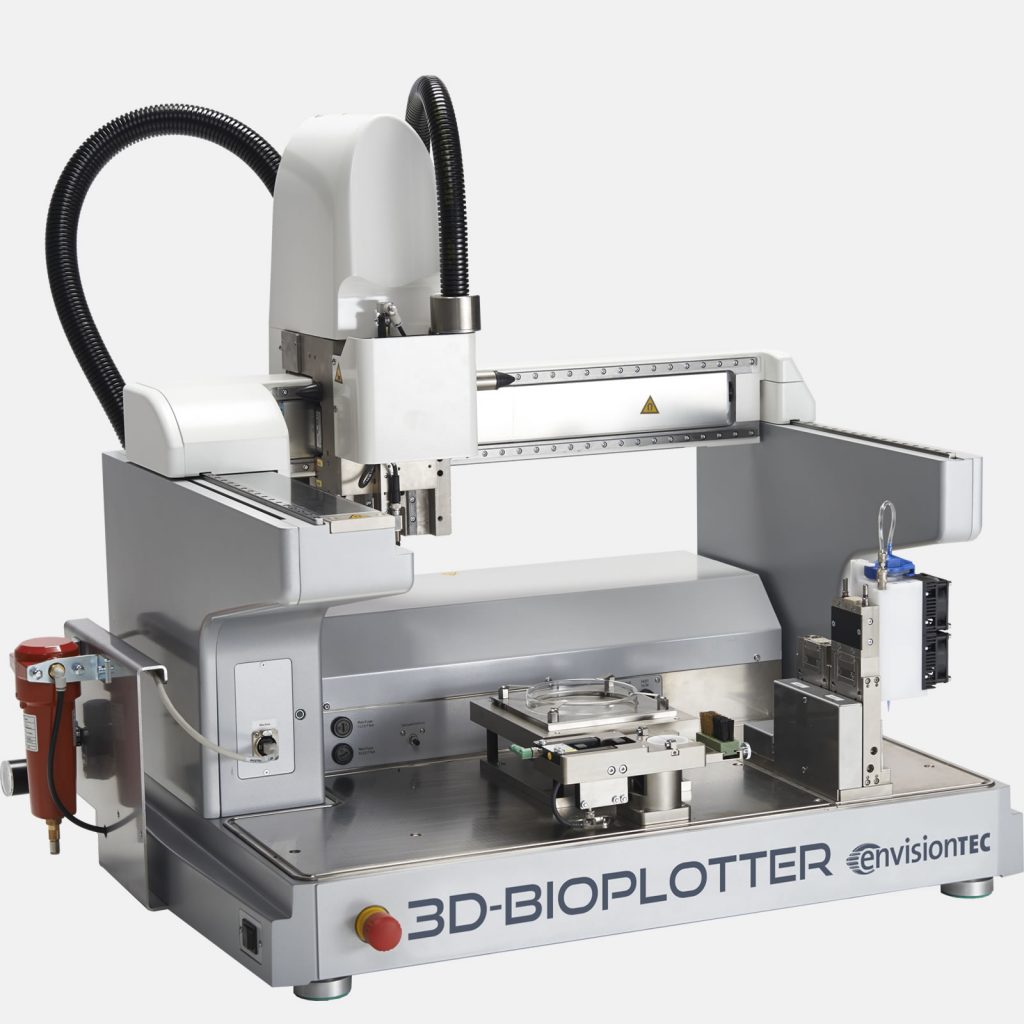A team of researchers from the IGB’s Regenerative Biology and Tissue Engineering (RBTE) theme was awarded a NSF grant that will provide funding for a new 3D-bioprinting instrument.
The Major Research Instrumentation grant will fund the purchase of an EnvisionTEC 3D-Bioplotter, a bioprinting system that is essentially a 3D printer for tissues.

Much of the research in the RBTE theme involves developing approaches to regenerate tissues in order to address problems of human health. But this is not a simple task, considering human tissues are all uniquely complex.
Bioprinting, which uses 3D printing technology to create cell patterns and fabricate biomaterials, will allow researchers to print materials that closely resemble human tissues.
Unlike many 3D printers, which print metals or other hard materials, this bioplotter will let researchers print a wide variety of materials — including materials that are similar in consistency to toothpaste, as well as materials that are the size of human hair or smaller.
“This bioplotter really allows us to do all that,” said Associate Professor of Chemical and Biomolecular Engineering Brendan Harley, RBTE theme leader. “It really lets us open up the toolbox of the materials we can use.”
The bioplotter will be housed within the IGB as a shared-use facility that will be accessible to researchers across campus.
Several research efforts at the IGB and the University of Illinois are dedicated to developing tissue engineering solutions that could impact a range of important healthcare issues such as cancer, stem cell behavior and more.
Harley hopes these researchers will look to the IGB and the RBTE theme as a hub for tissue engineering on campus.
He said 3D bioplotters have finally become capable of reliably printing at the scale needed to produce complex tissues, and with the acquisition of this printer, IGB will be at the forefront of tissue engineering research.
“We’re going to be able to do some really exciting new work,” he said. “Everything’s in place to really attack big, challenging problems.”
